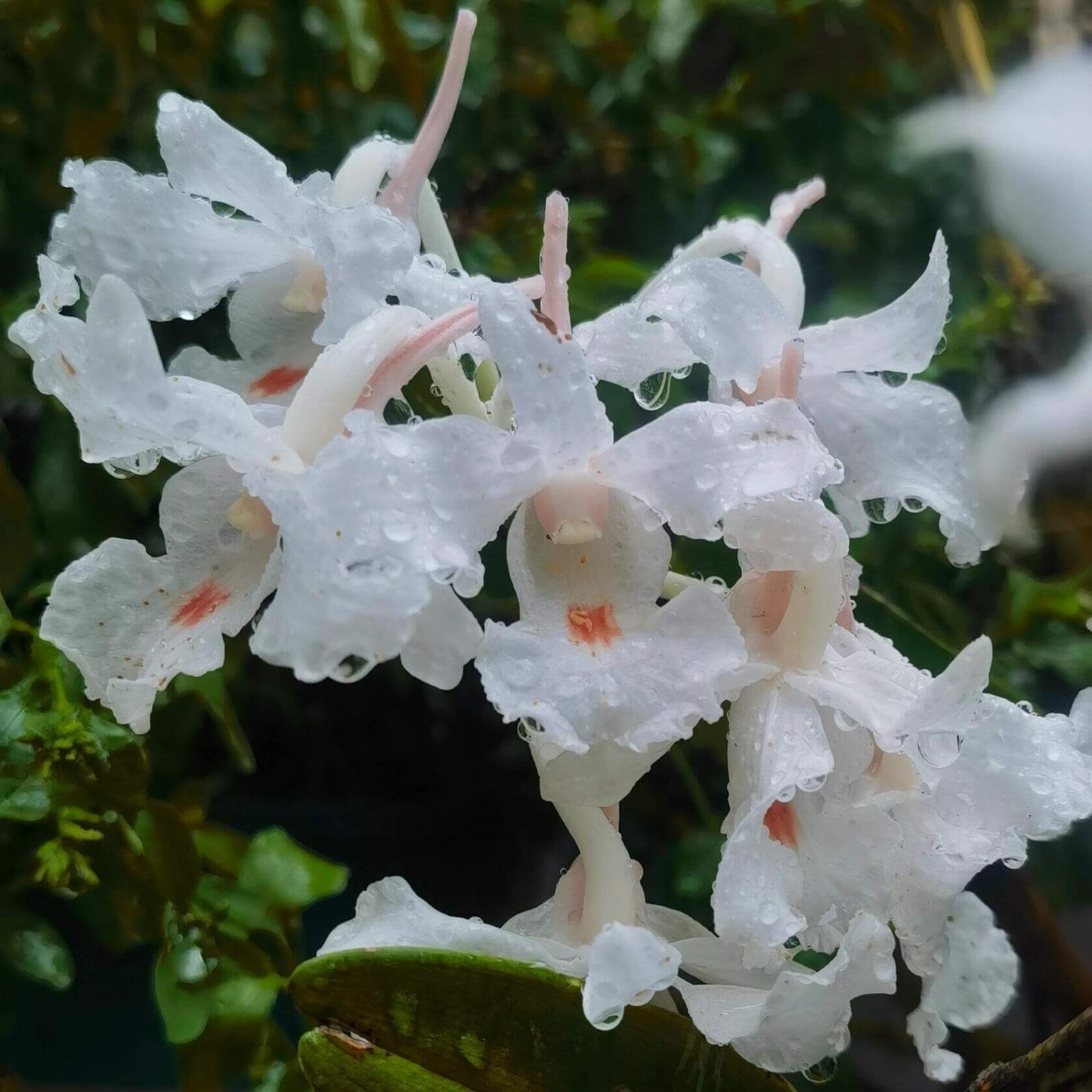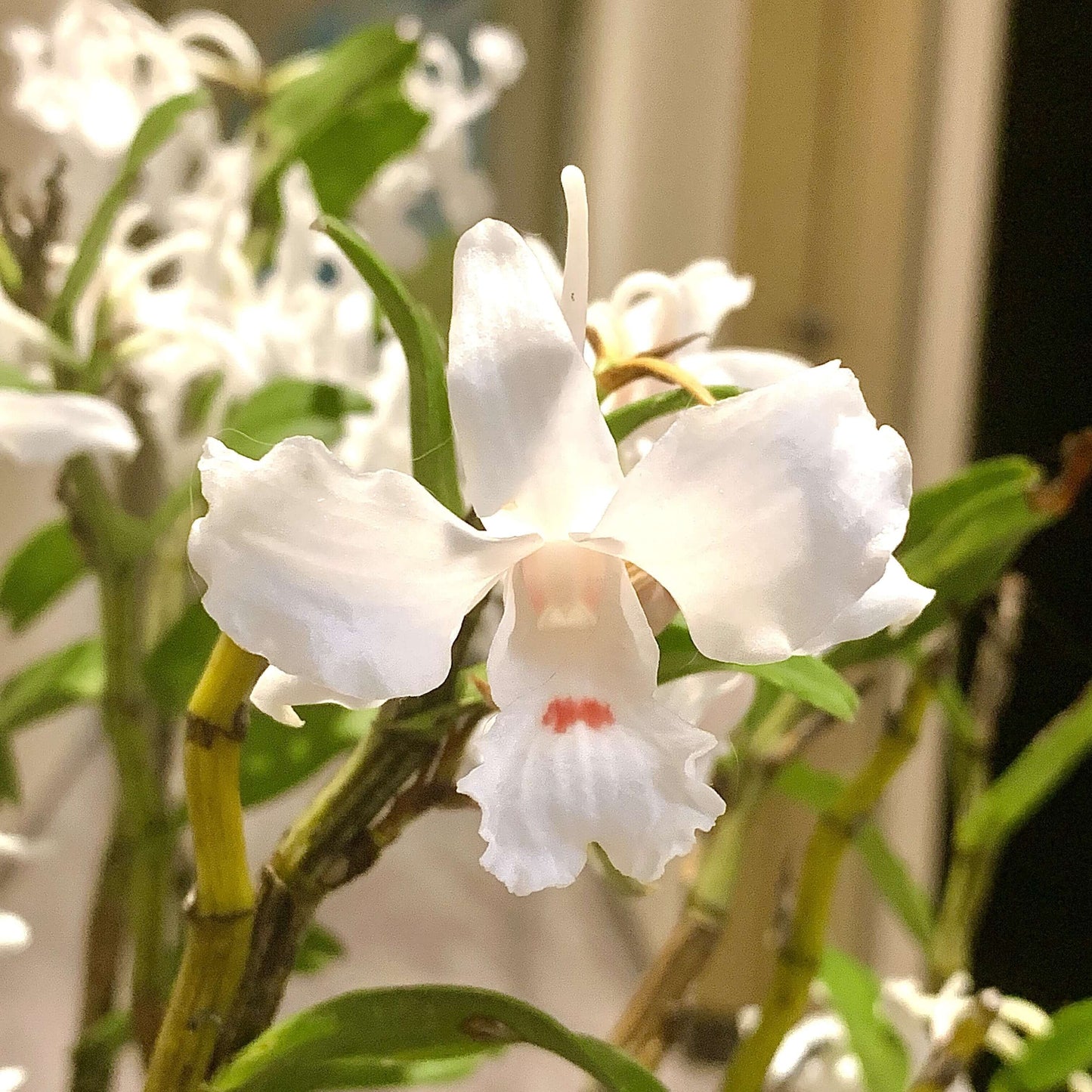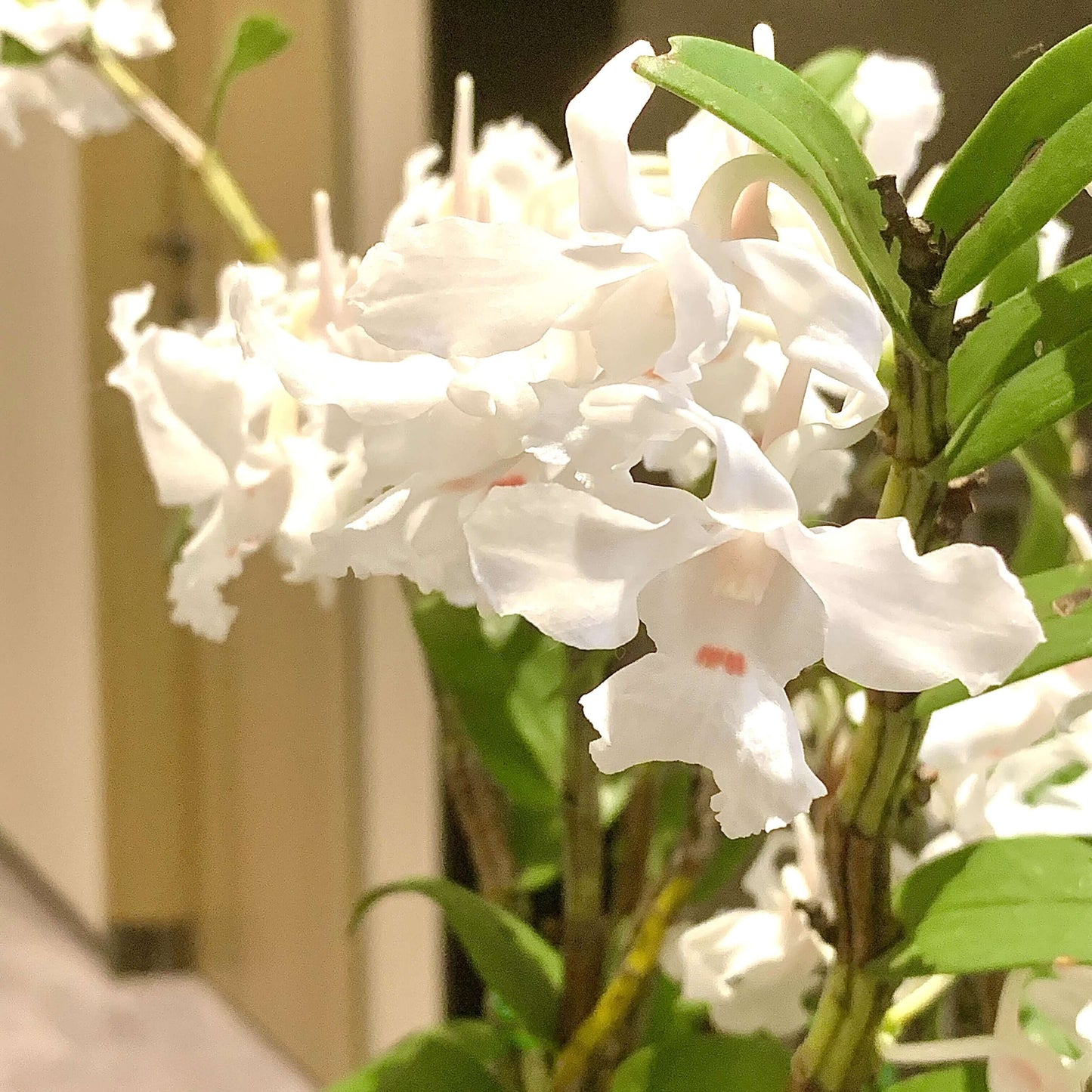Begin With Plants
Dendrobium virgineum
Dendrobium virgineum
Couldn't load pickup availability
Dendrobium virgineum is native to moist cloud forests of Myanmar, eastern Thailand, Laos, Cambodia, and Vietnam, where it typically thrives at elevations below 1,600 meters.
Features:
-
Growth Habit: A medium-sized epiphyte (or lithophyte) that grows to about 30–40 cm in height, with slender, cylindrical canes and numerous deep-green, elliptic-ovate, bilobed leaves covered in tiny black hairs.
-
Flowers: Produced in late summer to fall, a short raceme carries 4–6 fragrant flowers, each around 3.75–4 cm across. The lip often features an orange spot and sometimes red veining.
Care Tips:
-
Light: Provide bright, indirect light. Avoid hot direct sunlight which can scorch leaves.
-
Temperature: Thrives in warm to cool conditions. Ideal daytime: 20–30 °C; nighttime: a slight drop by 6–10 °C is beneficial.
-
Humidity: Prefers moderate to high humidity (~60–83%), especially during growing season.
-
Watering: Keep the medium consistently moist, allowing slight drying between waterings. During winter or drought, reduce frequency—but do not let it remain bone dry.
-
Substrate/Mounting: Thrives mounted on cork or tree fern (with daily watering in warm weather), or in a loose, fast-draining bark mix.
-
Fertilizer: During active spring growth, use half-strength orchid fertilizer weekly. Apply high-nitrogen fertilizer in mid-spring to summer, switching to high-phosphorus until autumn to encourage flowering.
-
Rest Period: As autumn progresses and new growths mature, gradually reduce watering. In winter, allow the plant to dry slightly between waterings and minimize fertilization until spring.
-
Repotting: Best done at the start of spring when new roots emerge. Use a coarse, well-draining mix or remount as needed.
-
Resilience: This species is notably forgiving—recovering well from stress if provided consistent care; however, sudden changes (like abrupt repotting or temperature spikes) can cause setbacks.
Share





